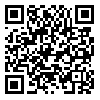Volume 11, Issue 4 (November 2024)
Avicenna J Neuro Psycho Physiology 2024, 11(4): 146-152 |
Back to browse issues page
Ethics code: IR.UM..1403.011
Download citation:
BibTeX | RIS | EndNote | Medlars | ProCite | Reference Manager | RefWorks
Send citation to:



BibTeX | RIS | EndNote | Medlars | ProCite | Reference Manager | RefWorks
Send citation to:
Afshari A. The Effectiveness of Brain-compatible Learning on Academic Self-Concept and Academic Self-Efficacy IN students. Avicenna J Neuro Psycho Physiology 2024; 11 (4) :146-152
URL: http://ajnpp.umsha.ac.ir/article-1-506-en.html
URL: http://ajnpp.umsha.ac.ir/article-1-506-en.html
Department of Psychology, Faculty of Humanities, University of Maragheh, Maragheh, Iran , aliafshari.psy@gmail.com
Abstract: (1412 Views)
Background and Objective: The human brain has special applications for improving learning, and the use of Brain-compatible Learning enhances students' learning experiences. Therefore, the present study aimed to determine the effectiveness of Brain-compatible Learning on students' academic self-concept and academic self-efficacy.
Materials and Methods: To evaluate the effectiveness of this method, a quasi-experimental design with pre-test-post-test was used, along with a control group. The statistical population of the study consisted of all male high school students (n=1,500) in district one of Maragheh, Iran, in 2022-2023. From the aforementioned population, 30 students were selected as samples using a cluster random sampling method. These individuals were randomly assigned into two experimental and control groups. After the participants were randomly assigned, the academic self-concept and academic self-efficacy questionnaires were administered to members of both groups in the pre-test. Then, the experimental group participated in 18 Brain-compatible Learning training sessions, while the control group received no intervention. After the training sessions, the post-test was administered and a follow-up was conducted after one month. The data were analyzed using the statistical method of analysis of covariance.
Results: The findings showed a significant difference in academic self-concept and academic self-efficacy scores in the two groups (P≤0.01). Therefore, the average scores of academic self-concept and academic self-efficacy of the experimental group in the post-test and follow-up stages were higher than those of the control group.
Conclusion: The results suggest that Brain-compatible Learning mechanisms, such as engaging multiple sensory modalities and creating emotionally supportive environments, foster more positive self-beliefs (self-efficacy) and self-perceptions (self-concept) among students, as supported by statistically significant data obtained in this research.
Materials and Methods: To evaluate the effectiveness of this method, a quasi-experimental design with pre-test-post-test was used, along with a control group. The statistical population of the study consisted of all male high school students (n=1,500) in district one of Maragheh, Iran, in 2022-2023. From the aforementioned population, 30 students were selected as samples using a cluster random sampling method. These individuals were randomly assigned into two experimental and control groups. After the participants were randomly assigned, the academic self-concept and academic self-efficacy questionnaires were administered to members of both groups in the pre-test. Then, the experimental group participated in 18 Brain-compatible Learning training sessions, while the control group received no intervention. After the training sessions, the post-test was administered and a follow-up was conducted after one month. The data were analyzed using the statistical method of analysis of covariance.
Results: The findings showed a significant difference in academic self-concept and academic self-efficacy scores in the two groups (P≤0.01). Therefore, the average scores of academic self-concept and academic self-efficacy of the experimental group in the post-test and follow-up stages were higher than those of the control group.
Conclusion: The results suggest that Brain-compatible Learning mechanisms, such as engaging multiple sensory modalities and creating emotionally supportive environments, foster more positive self-beliefs (self-efficacy) and self-perceptions (self-concept) among students, as supported by statistically significant data obtained in this research.
Article Type: Research Article |
Subject:
Learning and Memory, Dementia, Alzheimer
Received: 2025/01/14 | Accepted: 2025/05/14 | Published: 2025/05/15
Received: 2025/01/14 | Accepted: 2025/05/14 | Published: 2025/05/15
Send email to the article author
| Rights and permissions | |
 |
This work is licensed under a Creative Commons Attribution-NonCommercial 4.0 International License. |







